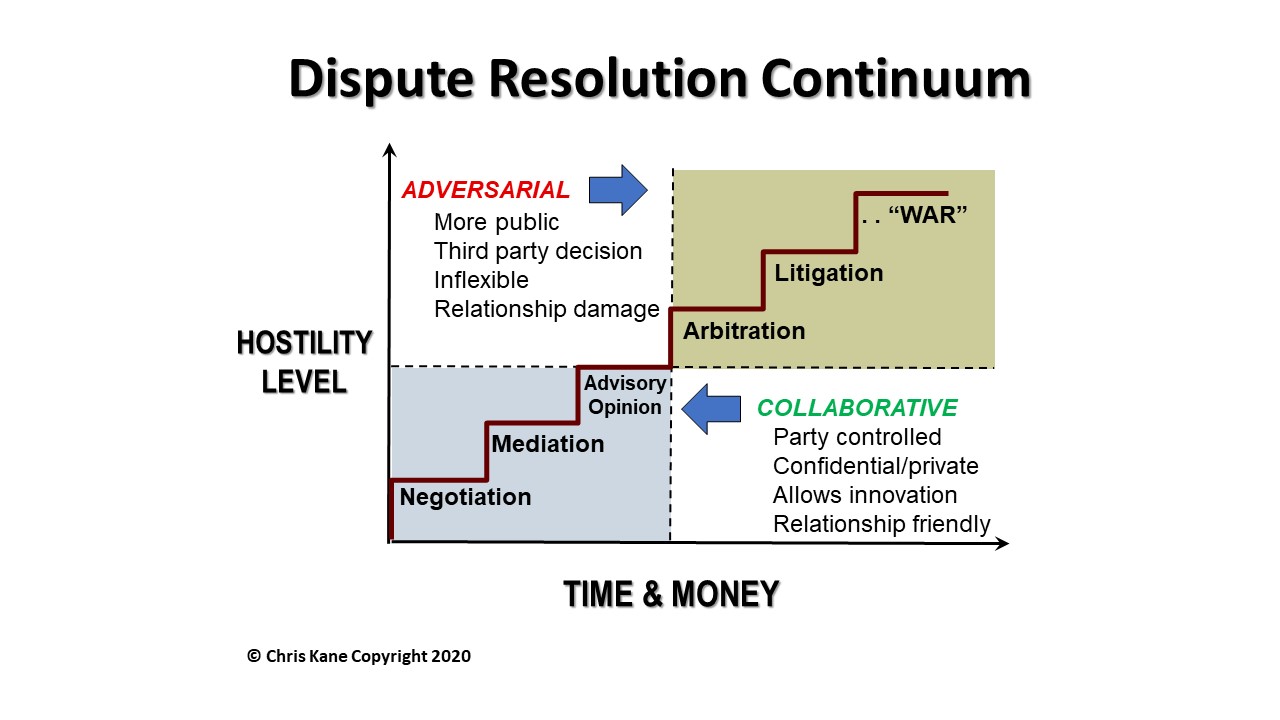
LESSONS LEARNED FROM JIMMY CARTER THE MEDIATOR
In Jimmy Carter’s book entitled “A Full Life” he describes the 13-day 1978 Camp David peace negotiations between Egypt and Israel. In his own words, he details some of the more personal relationships that he developed with Anwar Sadat of Egypt and Menachem Begin of Israel. As he retells what happened, it is clear that his particular humanistic and compassionate style helped him accomplish success as the mediator for this landmark agreement, ending what had been 30 years of war. The following excerpts are taken from Chapter 6 directly from his words but summarized and put into 3rd person. His recollections provide some great lessons-learned for mediators who are faced with a challenging assignment and parties that distrust and even hate each other. Convening and Picking the Right Location. [...]
Use a “Mediator” Before Engaging the “Terminator”
As most construction industry participants know, a termination for default can be a high-risk proposition for both sides. It very often ends in a lose-lose outcome. Almost always, there are some significant disputed change orders, or extended delay issues, or both. That circumstance in turn results in issues of non-payment or withheld amounts of liquidated damages. The owner withholding of payments makes it harder for many contractors to perform. Once the default happens, a completion contractor needs to be engaged. At that point whatever the cost or remaining time to complete may have been, both are likely to increase by a large factor. An early dispute resolution mechanism can help prevent reaching these termination breaking points. One of my first experiences using Zoom for mediation was during the pandemic, and [...]
The “Need for Speed” in Solving Flood Control and Resiliency Challenges
THE STORMWATER PROBLEM As demonstrated by the severe flooding in the Northeast U.S. this past month, the problems associated with increased storm intensity, undersized systems, and deteriorating infrastructure are rapidly intersecting in a perfect storm. I was stunned to see this picture of West Point on a road I jogged along many times during my college years there. Recent reports about the future of rain intensity, stormwater forecasting and design point out the problem - we historically have been designing our infrastructure looking in the “rear view mirror” at the past 100 year storms. Unfortunately, because of the accelerating increases in storm intensity, this has resulted today in many stormwater systems that are now completely undersized. METHODS TO SPEED THINGS UP When we look ahead at the flood control infrastructure [...]
Staying in the Collaborative Quadrant of Conflict Resolution
The development of complex infrastructure projects very often requires very complex agreements. These projects tend to have implementation periods that can continue for many decades. This makes it challenging to completely identify every possible eventuality or future conditions in the contracting provisions. This complexity and uncertainty can produce situations where there are differences in interpretation and opinion. Therefore, the agreement must include adjustment mechanisms and a dispute resolution process that can resolve conflicts and avoid unnecessary delays and cost impacts. The best practice in this area is to have a well-thought-out, phased dispute-resolution process that emphasizes collaborative methods. The objective is to encourage disputes to get resolved, at the lowest level possible, for the least cost, and at the earliest possible time. Maintaining good working relationships is also of paramount [...]

